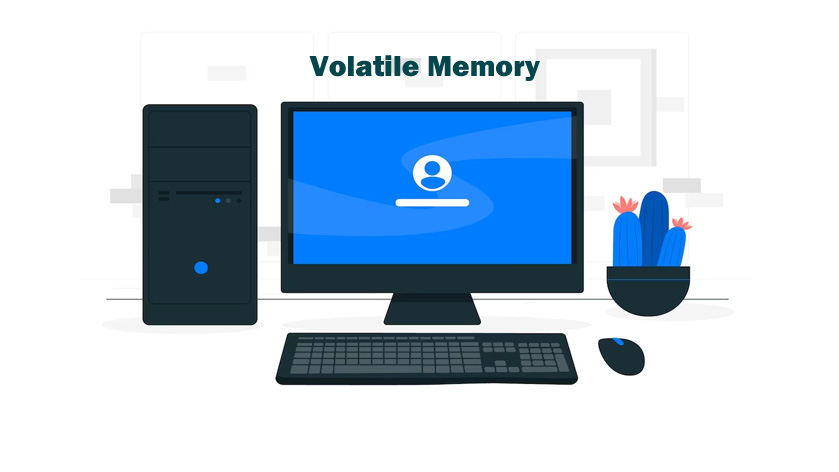Volatile memory is a type of storage in which the contents remain saved and unerased, telling the time the device is not shut down until it has a power supply. Once the devices shut down, the data will be lost. One of the examples of this is RAM (Random memory access. This type of memory is used in computers, laptops, mobile phones, printers, and more.
File memory in the computer device is called storage or primary memory. The computer quickly provides the right and read operations from and to memory. Suppose you are working on a document on your computer device. The document will be stored in the RAM during this process. Later, after completing your task, when you switch off your computer, the random access memory will lose the document automatically. So, if you want the document to be saved, you must do it manually and save it in non-volatile memory, such as a hard disk.
Advantages of Volatile Memory
- It consumes significantly less electric power when compared to non-volatile memory devices such as complex and other types of drives.
- It performs work quickly. The system works very fast, especially regarding read and write operations.
- If the computer or any device has large RAM, it will perform quicker, eventually increasing the overall performance.
- The data stored by volatile memory will be processed on a central processing unit. This random access capability is essential for efficient data manipulation and processing.
- This is commonly used as cache memory in modern computer systems to temporarily store frequently accessed data and instructions, allowing for even faster access by the CPU and reducing the need to access slower, non-volatile storage devices.
- This serves as temporary storage for data and program instructions actively being used or manipulated by the CPU. This lets the computer quickly access and modify data during program execution, improving overall system performance.
Conclusion
In conclusion, volatile memory plays a critical role in computer systems by providing fast, random access storage for temporary data and program instructions, thereby improving system performance and responsiveness.

